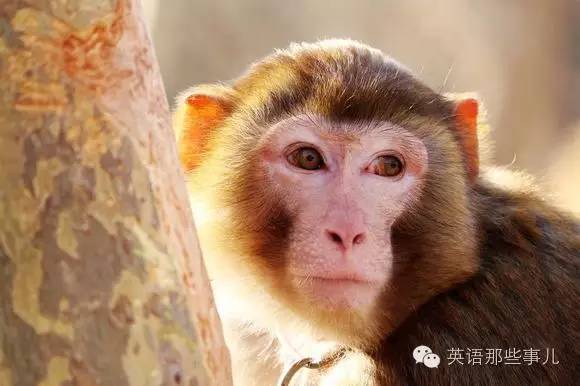英语学习|动物们萌翻的英语表达必须懂!
时间:2016-10-18 16:51:04 来源:http://www.pinghe.com 作者:平和英语村
每种动物都有各自的脾性
一旦有“人”涉足其中
一定会发生奇妙的化学反应
一起来看看这些
【“喵”语·双关】
1. Have kittens 极度的紧张或不安
Sweet, cuddly, cute: what's not to love about kittens, the most watched animals on the Internet? But giving birth to them might be a different experience altogether. Apparently, back in medieval times, a woman who suffered pains during pregnancy would often be advised by the local witch that she was, to her misfortune, carrying kittens, and that the only remedy was a magic potion to destroy the unhappy litter.
作为在互联网上最受关注的动物,小猫甜美而惹人喜爱。但生下它们的过程可能是一个完全不同的体验。显然,中世纪时期,一个在怀孕期间遭受痛苦的女人常常被当地的女巫建议,她很不幸地怀着小猫,唯一的补救方法是喝下魔法药水摧毁来摧毁腹中的胎儿。

例句:
1. Have you got that report ready yet? The boss is having kittens!
你的报告准备好了么?老板非常紧张。
2. We're so late – my mum'll be having kittens."
我们迟到了,我妈妈一定心烦意乱。
2. All dressed up like a dog's dinner
穿着特别或招摇的衣服
The British love their dogs – they’re the most popular pet in the UK. Dogs' dinners, however, are not usually very appealing at all – in fact, the expression a dog's dinner on its own also means a mess.
英国人爱狗,狗是英国最受欢迎的动物。但事实上,狗的晚餐却并不吸引人,a dog’s dinner (狗的晚餐)这样的表达本身的含义确实是负面的。

例句:
1. Where are you off to then, all dressed up like a dog's dinner?
你之后要去哪里,穿得这么招摇?
3. A cold fish 冷漠的人
Dictionary definition: a + adjective + fish: a person who is strange in a specified way.Although in theory any adjective can be put before fish, cold is by far the most common one.
字典定义:a+形容词+fish:某人在某方面较为特别。尽管在理论上其他形容词同样可以放在fish前,但cold是目前最为常用的词。
If you're a cold fish, you're unemotional, and perhaps even unfriendly. To sound even more British, add a bit of:
如果你被叫做“cold fish”,你是有较少感情波动的、甚至是不友好的。为了听起来更英式化,也会在之前添加“a bit of”

例句:
1. I tried talking to Rachel at the party, but she's a bit of a cold fish.
在派对上我试图和瑞秋说话,但她有些冷漠。
2. What did you think of him?" – "Bit of a cold fish, wasn't he?
你认为他怎么样?”“有一些冷漠,不是吗?”
4. Like a bear with a sore head 形容人易怒
Brown bears have been extinct in Britain for over a thousand years, but, like wolves, they have left their mark in our fairy tales: it seems wise to stay well away from one of the most dangerous animals in the world.
棕熊在英国已经灭绝了一千多年,但是,像狼一样,它们在传说故事中已经留下了印记:远离这种世界上最危险的动物才是明智的举动。
If you're a like a bear with a sore head, you're in a very bad mood. Interestingly, this phrase is more often used to describe men than women.
如果你是“like a bear with a sore head”,代表你心情很糟糕。有趣的是,这个短语更多地用来形容男性而不是女性。

例句:
1. I don't know whats up with Mike – he's like a bear with a sore head today!
我不知道迈克发生了什么?他看起来心情很糟。
2. He's like a bear with a sore head if he doesn't get his cup of tea in the morning.
如果他在早上没有喝一杯茶的话,就会心情烦躁。
5. Not give a monkey's 冷漠或不关心
Monkeys are often associated with mischief and defiance in English: maybe your little brother is monkeying around, or your friend’s a bit of a cheeky monkey. This euphemism – there’s some debate over what the original missing word was (a monkey's what?) – captures both those characteristics.
Monkey(猴子)在英语中经常和恶作剧以及蔑视相关:也许你的小弟弟正在胡闹,也许你的朋友有点厚颜无耻。这种委婉语都是抓住了这些特征。对于原始词汇a monkey's 后面究竟是什么词汇也存在一些争论。

例句:
I don't give a monkey's what he thinks – I'm not doing it.
对于他怎么想我并不在意,我并没有那样做。
6. Like a rat up a drainpipe 形容快速且急切
If you move like a rat up a drainpipe, you move extremely fast.
如果你的行动like a rat up a drainpipe,表示你移动速度很快。
Pity the poor rat – a shrewd but shunned animal in Britain, where it's often said that "you're never more than six foot away from" one. Rats are known to be able to squeeze through the tiniest of openings and are often found in sewers, so this expression is, as the Brits would say, spot on.
可怜的老鼠值得同情——在英国老鼠是一种精明但人类极力躲开的动物,但在英国人们常说,“你距离一个老鼠的距离不会超过六英尺”。老鼠因为能够挤过狭小开口并经常在下水道中被发现而被人类熟知。所以这个表达在英国较为流行,英国人常会使用。

例句:
Where did Steve go?’ – ‘I don’t know – he just took off like a rat up a drainpipe.
史蒂夫要去哪里?”-“我不知道,他只是离开得很匆忙。
7. Be up with the lark 很早起床
The lark has a special place in British wildlife – its silvery song inspired the piece that, according one recent poll, has become the country's favourite piece of classical music. We have long associated the lark with daybreak, even before Shakespeare wrote the lark, the herald of the morn: a person who gets up early is known as a lark, as opposed to an owl who prefers to stay up late.
百灵鸟在英国野生动物有特别的位置——它银铃般的歌声启发了一支乐章的谱曲,并且这首乐章在最近的投票中当选英国民众最受欢迎的古典音乐。在莎士比亚写云雀之前,我们便一直将百灵鸟与黎明联系在一起,百灵鸟代表着早晨起床很早的人,相反,猫头鹰更常用来代表熬夜的人。

例句:
1. We were up with the lark this morning because we had a plane to catch.
我们今天很早起床,因为要赶一趟航班。
2. On Christmas Day, my sister and I would always be up with the lark.
在圣诞节,我和姐姐总是起得很早。
8. The lion's share 事物中最大的一部分
The lion has been a symbol of England for more than nine hundred years, and traditionally represents bravery and strength. We see the shadow side of these qualities, however, in Aesop's fable of this name, which tells the story of a lion, a fox, a jackal, and a wolf who go out hunting together. After dividing their prey into four equal parts, the lion claims all the spoils for himself.
九百多年来,狮子一直是英国的象征,传统意义上代表勇气和力量。然而,我们总是看到这些品质的阴暗面,伊索寓言中,讲述了一只狮子、一只狐狸、豺和狼一起打猎的故事。它们之后将猎物分成四个相等的部分,但狮子占有了所有的战利品。
The British expression used today has a slightly different meaning: if you get the lion's share of something, you get most of it (rather than all of it).
但今天使用的英式表达中含义有轻微的不同:如果你“get the lion's share of something”,表示你获得了某事物的绝大部分(而不是所有)。

例句:
Well, I think you got the lion's share of the cake there, Pete!
好吧,我认为你得到了蛋糕的绝大部分,彼得!
She'll get the lion's share of the payout – the rest of the money will go to charity.
她将获取支出中的绝大部分,剩下的将捐给慈善机构。

英语真有趣
连『动物』都可以教你说几句
把这些双关语学起来
去动物园装学霸~
------------------------------
一日一记:
If we can only encounter each other rather than stay with each other,then I wish we had never encountered .
如果只是遇见,不能停留,不如不遇。
更多的英语学习资料,戳这里!
本文链接:https://www.pinghe.com/StudentStyle/learning-material/2016-10-18/1865.html
更多内容
- 英语学习|神州十一号发射成功啦,鼓掌!2016-10-17
- 英文歌曲|《I Will Always Love You》2016-10-14
- 英语学习|暴击加班痛点,用英文怎么喊累2016-10-13
- 用英语解读欺凌这种社会现状2016-10-12
- 《How long will I love you》2016-10-11
马上评估您的学习费用

学英语目的
可支配学习时长


 全部课程
全部课程






 粤ICP备11066329号-2
粤ICP备11066329号-2
 粤公网安备 44040202000471号
粤公网安备 44040202000471号
